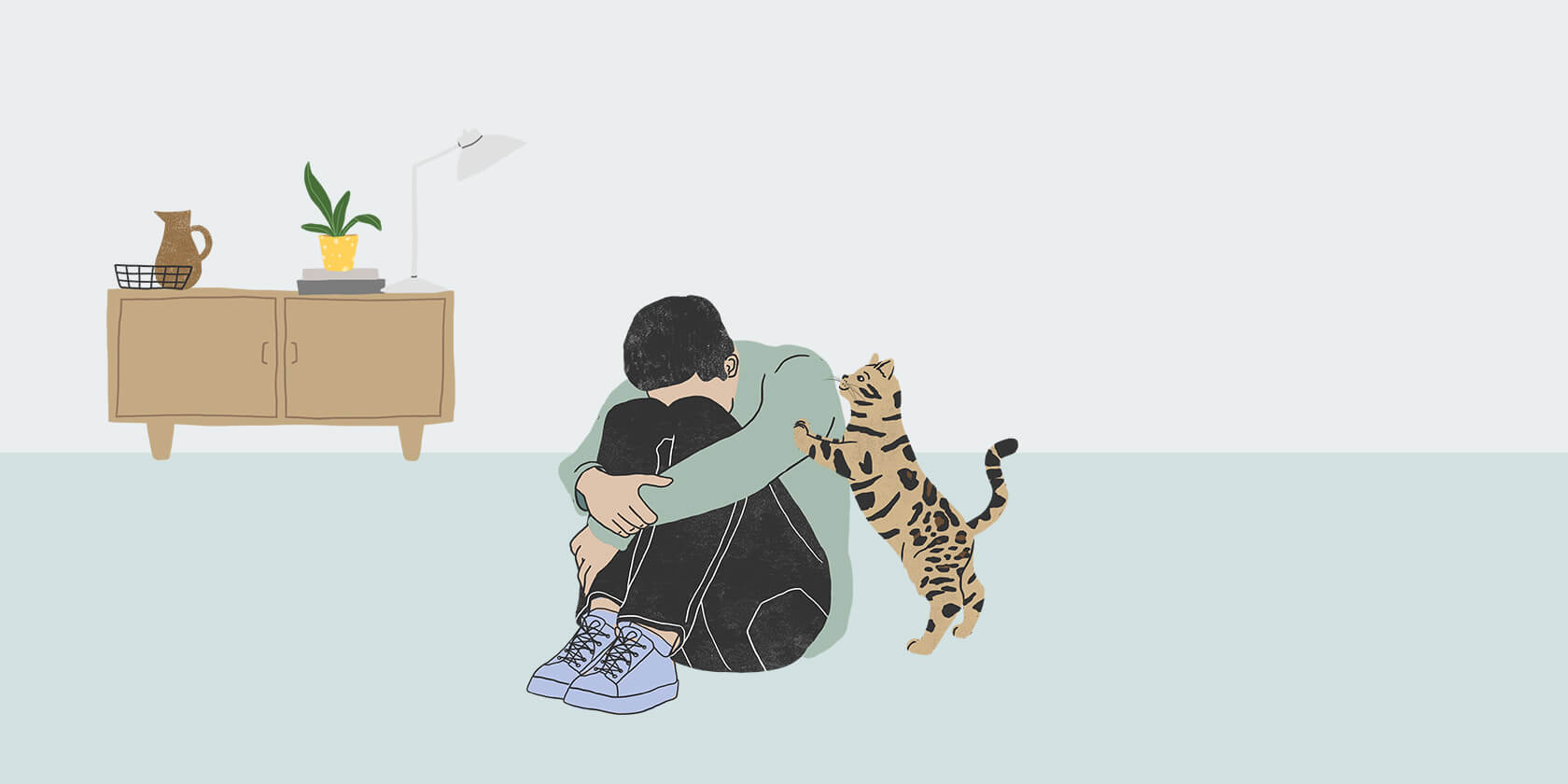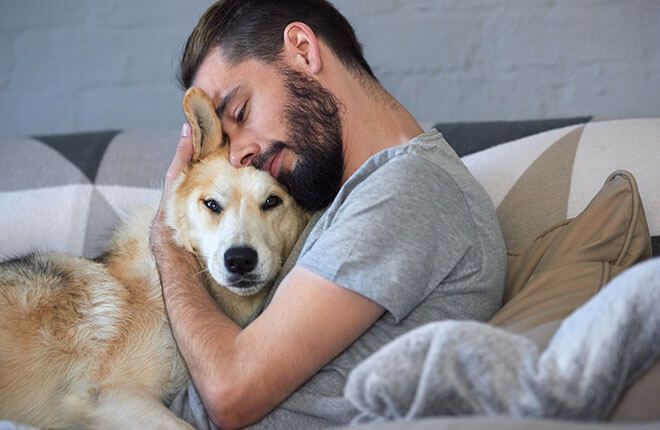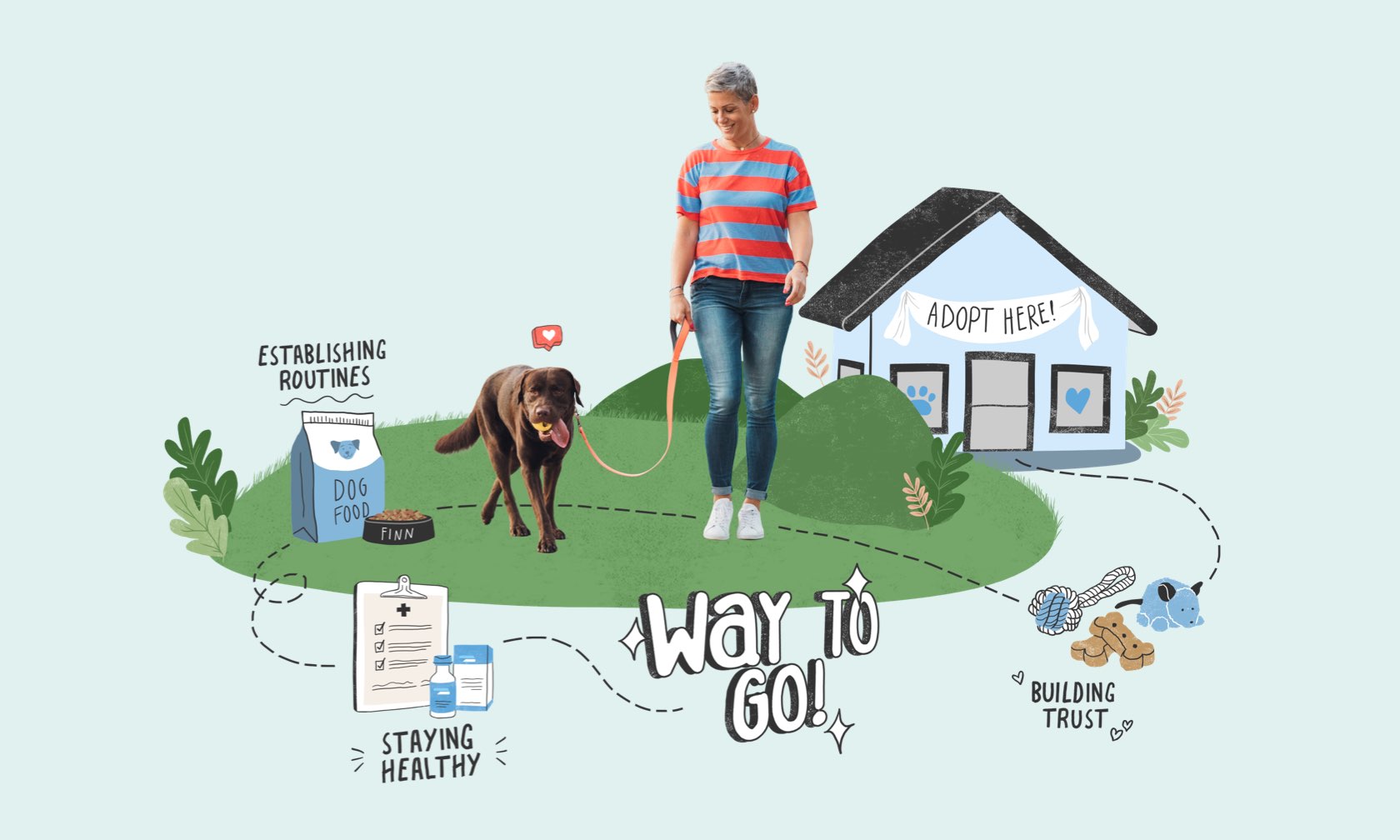As pet lovers, we can all agree there are many benefits to having pets in our lives, especially when times are tough. And science agrees. From emotional well-being to physical health, dogs and cats have a measurable, positive effect on us. This positive effect is especially important during stressful life events, particularly when we are faced with threats to our personal health and livelihoods. During these times, much-needed relief and comfort can be gained by spending time with your pet.
The Physical Impact of Pets on People
Fortunately, stress and anxiety both tend to improve when you interact with your pets, in part due to the “feel good” hormones like oxytocin, dopamine, and serotonin being released. Stress hormones like cortisol are also decreased. All of this is proven to boost your immune system, which helps maintain good health[1].
Additionally, people who have a pet tend to be more active (especially if you have a dog that loves their walks), which could mean reduced blood pressure, cholesterol, and triglyceride levels, leading to an overall improvement in cardiovascular health[1]. Studies have also shown that owning a dog is associated with a lower risk of cardiovascular disease and, ultimately, mortality[2].

How Dogs and Cats Influence Human Emotions and Mental Health
Whether it’s in the form of stress, fear, depression, anxiety, or insecurity — when things get rough, our mood and overall mental health can be seriously compromised. Thankfully, we have our cats and dogs to help us through. Most of the time, just being around animals can lift your mood. But it goes much deeper than that.
- Diversion
Having a pet can divert your attention from the stress and anxiety you may be feeling at any given moment and help you focus instead on giving and receiving love and care. - Morale
Pets can help keep your morale up and can motivate you to continue or seek treatment for emotional and mental health issues[3]. - Less Destructive Behavior
People with pets tend to engage more in positive and self-enhancing behaviors, with fewer destructive, aggressive, and self-harm tendencies[3].
- Comfort
When you’re feeling down, angry, or frustrated, a pet provides an important source of comfort. Pets are very good at reading our body language and frequently offer connection with proximity (closeness) or physical touch, which helps lower blood pressure and regulates heart rate[3]. - Fighting Loneliness and Worry
Studies show that pets help reduce feelings of loneliness, depression, worry, and irritability[4]. Our dogs and cats help us feel less lonely simply by being present with us. Being able to talk to our pets when we feel socially isolated helps us process emotions and keeps us engaged in our surroundings and day-to-day routine. - A Reason to Get up in the Morning
The act of caring for another living creature generates a feeling of purpose and accomplishment we often lack during difficult times. This also boosts self-confidence and enhances social interactions[4]. - A Confidant
Many people feel they can confide in their pets, talking out loud and helping to sort out whatever they’re struggling with. Pets represent a judgement-free and unconditionally loving confidant. - Security
Pets can provide a sense of security when a person is feeling exposed or at risk.
Science supports that our pets make us healthier and happier, even in the most difficult times. Their ability to mentally lift us up, physically get us moving, and sometimes even force us out of our comfort zone cannot be overstated. During stressful times as well as happy times, we will continue to turn to our pets for their love, loyalty, and companionship.
ZPC-01088
- Hunjan UG, Reddy J. Why Companion Animals Are Beneficial During COVID-19 Pandemic. J Patient Exp. 2020; 7(4): 430-432.
- Mubanga M, Byberg L, Egenvall A, et al. Dog Ownership and Survival After a Major Cardiovascular Event: A Register-Based Prospective Study. Circ Cardiovasc Qual Outcomes. 2019; 12(10):e005342.
- Fine AH, ed. Handbook on Animal-Assisted Therapy: Foundations and Guidelines for animal-Assisted Interventions. 4th ed. Elsevier Academic Press; 2015:427p.
- Brooks HL, Rushton K, Lovell K, et al. The power of support from companion animals for people living with mental health problems: a systematic review and narrative synthesis of the evidence. BMC Psychiatry. 2018; 18(1): 31.



